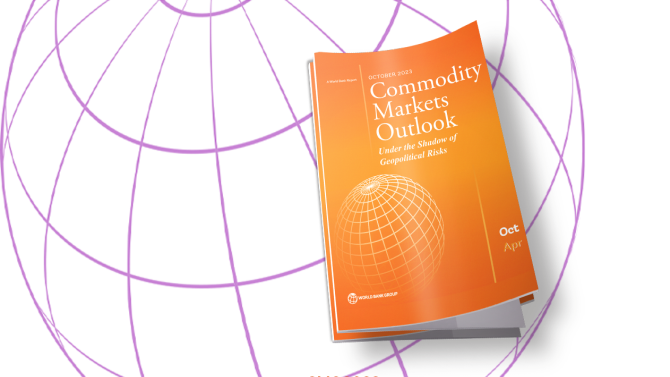
World Bank: A war in the Middle East might destabilize world markets
The World Bank is worried that tensions in the Middle East could undo the gradual opening of international markets, which saw Kenya, Benin, and Côte d’Ivoire issue Eurobonds at the beginning of 2024 after the continent had been shut out of international markets for nearly 24 months due to high interest rates.
According to Andrew Dabalen, Chief Economist for Africa at the World Bank, the growing tension between Israel and its neighbors could lead to an increase in oil prices on international markets. This could result in a return of high inflation and a tightening of interest rates by major central banks, which would prevent frontier economies, particularly those in Africa, from accessing global markets.
Although most of Africa’s significant dollar-denominated maturities for 2024 have been covered, there is worry that any new global market embargo will exacerbate the already drawn-out process of debt distress resolution for the larger frontier economies.
Kenya’s $2 billion Eurobond maturity, which has been partially refinanced, and Egypt’s $2.57 billion maturities, which have been addressed through copious amounts of concessional financing after the country’s program with the IMF was expanded by 166.7 percent to $8 billion this month, were Africa’s major maturities for 2024.
Senegal’s $162.94 million due on July 30 and Kenya’s $600 million due on June 24 are two more African maturities scheduled for 2024.
The Middle East is the area we are keeping the closest eye on because of the notable rise of hostilities there. The possibility that oil prices will rise is what worries us the most because it could seriously fuel inflation and keep interest rates high in the US and Europe, which would ultimately result in lower growth and currency depreciation and devaluation, Dr. Dabalen told The EastAfrican.
The World Bank is voicing worries at a time when the Opec basket price has surpassed $90 a barrel in April 2024 for the first time in ten months. If the trend continues, there is concern that the continent’s emerging moderate inflation may not last long.
While three African economies were able to reenter the global market in 2024, according to Dr. Dabalen, there is evidence that investors are demanding a punitive premium, which makes the market mainly inaccessible for economies in debt trouble that may be most in need.
“Right now, we are seeing a decrease in inflation in Africa. However, there is a genuine worry that if oil prices start to rise—you know, 18% of the world’s oil consumption is determined by the price in the Gulf—that will undoubtedly lead to an increase in inflation. The main concern is that just when we believe we have control over inflation, it could spiral out of control. You brought up Kenya, Benin, and Côte d’Ivoire returning to the international market. Access to the financial markets has been made slightly easier, but at a very hefty cost. The premium is about 12 percent, so many debt-ridden nations that are not in Kenya, Benin, or Côte d’Ivoire cannot afford it, according to Dr. Dabalen.
Iran claims that on the evening of April 13, it launched drones against Israel in retaliation for the Israeli attack on its consulate in Syria’s capital, Damascus, on April 1.
Concerns regarding Iran’s nuclear program, which it has always maintained is solely for peaceful purposes, were raised on Thursday when an Iranian commander stated Tehran could rethink its “nuclear doctrine” in response to Israeli threats.
Ahmad Haghtalab, the commander in charge of nuclear security, stated that “a review of our nuclear doctrine and politics as well as considerations previously communicated is entirely possible,” according to the semi-official Tasnim news agency.
Ayatollah Ali Khamenei, Iran’s supreme leader, has the last decision over Tehran’s nuclear program, which the West believes has military overtones.
All Categories
Recent Posts
Tags
+13162306000
zoneyetu@yahoo.com


